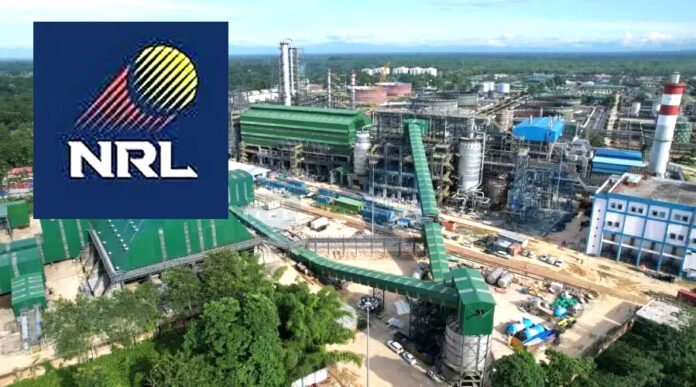Guwahati: The Numaligarh Refinery Limited (NRL) has achieved a landmark success with its bamboo-based biorefinery producing 99.7% pure ethanol during trial runs on September 3. The achievement marks a crucial step forward for India’s renewable energy sector as the country moves towards cleaner, sustainable fuel alternatives.
The bioethanol plant, the first of its kind in India to utilise bamboo biomass, is slated for formal inauguration by Prime Minister Narendra Modi on September 14. Once operational, it will stand as a significant milestone in the production of second-generation (2G) ethanol.“The trial run has validated our technology, and full-scale commercial production will begin after the inauguration,” said Himangshu Saikia, CEO of NRL Biorefinery.The project is the outcome of NRL’s collaboration with Finnish companies Fortum and Chempolis, both of which bring advanced expertise in biofuel technology.
The refinery is designed to process 300 thousand metric tonnes of bamboo annually and will produce 49 thousand metric tonnes of ethanol, alongside co-products such as furfural and acetic acid. The facility will also generate power from the biomass, making it a self-sustaining green venture.With an estimated project cost of ₹3,250 crore, the refinery has received ₹150 crore under the Central government’s viability gap funding. Beyond its technological importance, the project is also expected to transform the socio-economic landscape of the Northeast by creating large-scale livelihood opportunities in bamboo cultivation, harvesting, and logistics.
Also Read:https://www.theassamrising.com/ride-for-conservation-flagged-off-from-pobitora-wildlife-sanctuary/
Ethanol produced at the plant will be used for blending with petrol, directly supporting India’s target of reducing fossil fuel dependency. Notably, the country achieved 20% ethanol blending in petrol by 2025—five years ahead of the original 2030 deadline—highlighting the government’s commitment to cleaner energy transitions.The commissioning of the Numaligarh biorefinery not only underscores India’s bioeconomy potential but also strengthens Assam’s role as a hub for green innovation. The project is expected to serve as a model for future biomass-based energy initiatives across the country.

